Philosophical Dialogues
Philosophical Dialogues
Arne Nss and the
Progress of Ecophilosophy
Edited by
Nina Witoszek and Andrew Brennan

ROWMAN & LITTLEFIELD PUBLISHERS, INC.
Published in the United States of America
by Rowman & Littlefield Publishers, Inc.
4720 Boston Way, Lanham, Maryland 20706
12 Hids Copse Road
Cumnor Hill, Oxford OX2 9JJ, England
Copyright 1999 by Rowman & Littlefield Publishers, Inc.
Layout and Laserset by Lukcs Info, Oslo, Norway
Illustrations by Sigmund Kvaly Streng
Photo by Paul Kashap
All rights reserved. No part of this publication may be reproduced, stored in a retrieval system, or transmitted in any form or by any means, electronic, mechanical, photocopying, recording, or otherwise, without the prior permission of the publisher.
British Library Cataloguing in Publication Information Available
Library of Congress Cataloging-in-Publication Data
Philosophical dialogues : Arne Nss and the progress of ecophilosophy /
edited by Nina Witoszek and Andrew Brennan.
p. cm.
Includes bibliographical references.
ISBN 13: 978-0-8476-8929-3
1. Deep ecologyPhilosophy. 2. Environmental ethics. 3. Nss, Arne.
I. Witoszek, Nina. II. Brennan, Andrew.
GE195.P53 1998
179'.1dc21
98-24368
CIP
Printed in the United States of America
 The paper used in this publication meets the minimum requirements of American National Standard for Information SciencesPermanence of Paper for Printed Library Materials, ANSI Z39.481984.
The paper used in this publication meets the minimum requirements of American National Standard for Information SciencesPermanence of Paper for Printed Library Materials, ANSI Z39.481984.
Contents
ARNE NSS
|
ARNE NSS AND GEORGE SESSIONS
|
ARNE NSS, ALFRED AYER, AND FONS ELDERS
|
ARNE NSS
|
ALFRED J. AYER
|
FONS ELDERS
|
PAUL FEYERABEND
|
ARNE NSS
|
BILL DEVALL
|
ARNE NSS
|
GENEVIEVE LLOYD
|
ARNE NSS
|
JOHN CLARK
|
RICHARD A. WATSON
|
ARNE NSS
|
WILLIAM C. FRENCH
|
ARNE NSS
|
BAIRD CALLICOTT
|
WARWICK FOX
|
ARNE NSS
|
WARWICK FOXS RESPONSE TO NSSS RESPONSE TO FOX
|
ANDREW BRENNAN
|
PETER REED
|
ARNE NSS
|
VAL PLUMWOOD
|
KIRKPATRICK SALE
|
ARNE NSS
|
ARNE NSS
|
ARNE NSS
|
MICHAEL E. ZIMMERMAN
|
ARIEL SALLEH
|
KAREN WARREN
|
ARNE NSS
|
PATSY HALLEN
|
MURRAY BOOKCHIN
|
ARNE NSS
|
ARNE NSS
|
ARNE NSS
|
ANDREW MCLAUGHLIN
|
RAMACHANDRA GUHA
|
ARNE NSS
|
STEPHAN HARDING
|
ARNE NSS AND IVAR MYSTERUD
|
HAROLD GLASSER
|
ARNE NSS
|
BRYAN NORTON
|
JON WETLESEN
|
ARNE NSS
|
PER ARIANSEN
|
ARNE NSS
|
PEDER ANKER
|
ARNE NSS
|
NINA WITOSZEK
|
ARNE NSS
|
RAMACHANDRA GUHA
|
List of Figures
Preface
Dialogueone of the most fetishized concepts of our timeis much easier to talk about than to implement as a modus operandi. All too often the ostensibly pluralist and dialogic turns out to be a discreetly disguised exercise in the monologic imagination: a cult, a school, an ordinance, the Word of the Father. In the pages that follow we have tried to register what we consider to be one of the more genuine and seminal intellectual dialogues of the latter part of the twentieth century. Its instigator is the Norwegian philosopher Arne Nss; its concern is the fate of the planet.
More than thirty years have passed since Nss first broached the main premises of the deep ecological project. Seldom has such a laconicand openendedstatement provoked such an avalanche of response and spurred so many initiatives. How to account for this? After all, here was a daring, radical vision of social change being propounded at the very twilight of utopias. Its magnetism derived not merely from its appeal to an unspent idealism but, first of all, from its sheer common-sense formulation of the roots of and remedies to environmental crisis.
Despite the myriad of explications and anthologies of Nsss thought, none has hitherto presented the ways in which deep ecology matured and mutated through dialogical confrontation and polemic. All too often nonspecialist scholars and commentators, unaware of the growth and development that has taken place within ecophilosophy over the last thirty years, draw on or refer to isolated pronouncements or materials published during the movements infancy. During this period Nss not only attempted to address emerging postmodern and feminist perspectives but to rethink his own vision and methodology in the light of critique and controversy.
Hence this volume, although celebratory, is not a piece of hagiography. On the contrary, it attempts to bring together the most significantand hard hittingexchanges between Nss and his interlocutors. Some have been hitherto unpublished, other difficult of access because they took place in television studios or in the depths of Norwegian forest.
The book is dialogic in a triple sense. First, it tries to show the sheer breadth of Nsss engagement with other thinkers. They range from encounters with Sir Alfred Ayer and Paul Feyerabend, through exchanges with ecofeminists such as Karen Warren, to polemics with Indian intellectuals such as Ramachandra Guha. In a real sense, dialogue and confrontation remain Nsss element. Even as we go to print close to his eighty-fifth birthday, he has been excitedly taking up the challenges presented by some of his opponents in this volume, rethinking his position and preparing further responses.
Second, to bring this work up to date and to introduce a fresh perspective on earlier exchanges, we have invited a number of significant scholars in the field of environmental philosophy to comment briefly on crucial areas of concern. How does deep ecology rate at the end of the twentieth century? Is it, as some claim, a spent force or does it remain at the cutting edge of ecological thought as we enter the new millennium?
Third, the latent scenario in this book is that of a Platonic symposium, with Nss cast in his favorite role of Socrates. Like Socrates, Nss has always wanted to be a respectable pest. This book goes some way towards illustrating his achievements in this regard. Recall the famous feast, where a lively debate on the nature of love is broken up by the entrance of the drunken Alcibiades. Socratess pupil first extols his master and then asks him for guidance. Socrates, however, evades both Alcibiadess advances and his desire to turn him into a guru. In the subsequent confrontation, Alcibiades is all emotional commitment, a shard of a broken timber of humanityset over against Socratess stoic sang-froid. The feast ends in the philosophers triumph: Socrates maintains his sobriety to the end of the revels, then throws himself into a totally different debate where he puts everybody to sleep, and finally goes off to swim in the Leykon and pursue his daily routines.
Next page

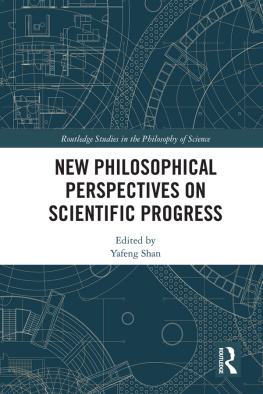
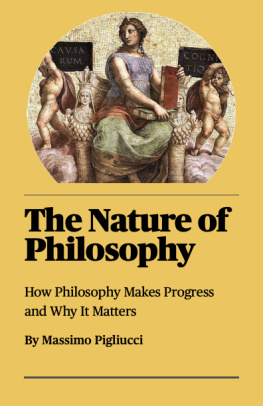

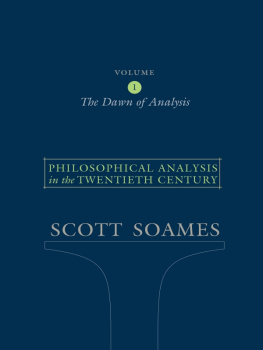

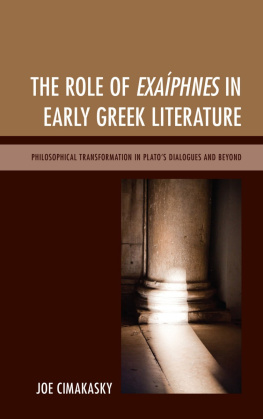
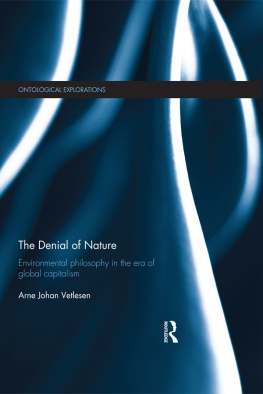

 The paper used in this publication meets the minimum requirements of American National Standard for Information SciencesPermanence of Paper for Printed Library Materials, ANSI Z39.481984.
The paper used in this publication meets the minimum requirements of American National Standard for Information SciencesPermanence of Paper for Printed Library Materials, ANSI Z39.481984.